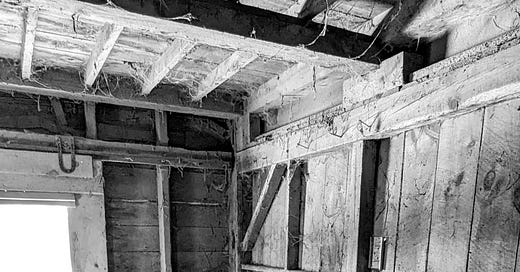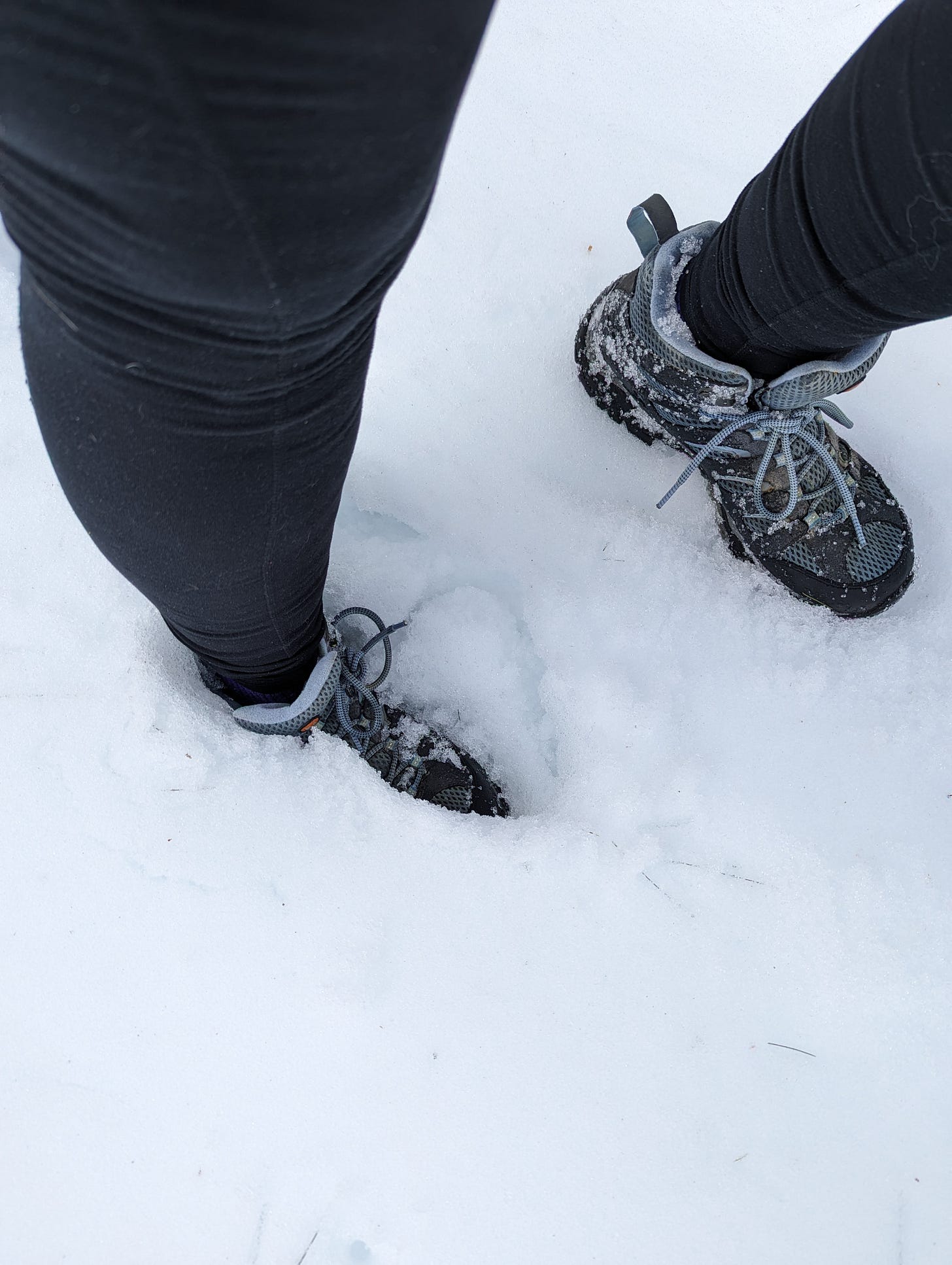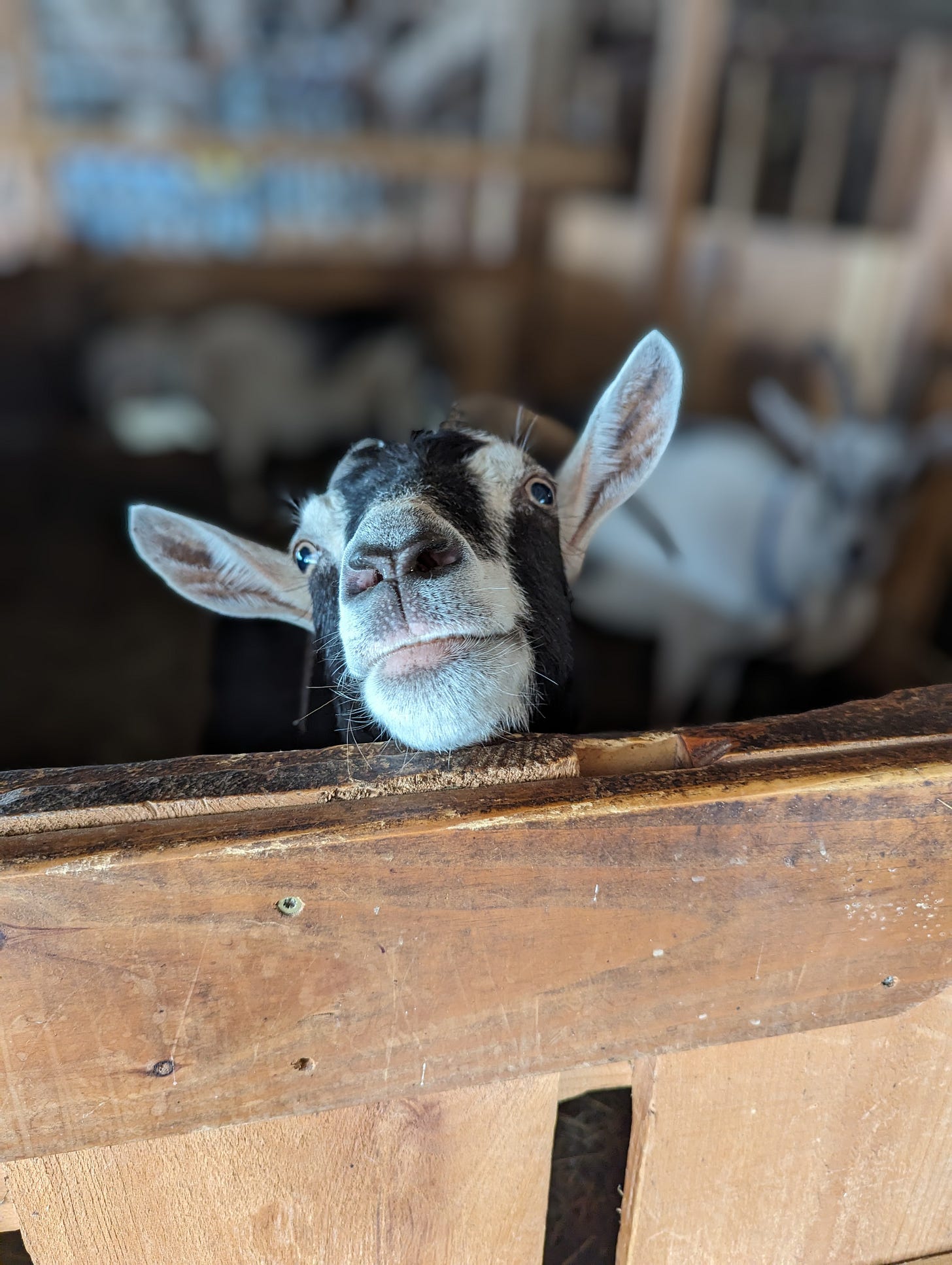I just returned from four days at Ten Apple Farm in Gray, Maine, where my friend Amy and I had a little vacation/writing retreat. The farm has a small house on the property that we rented as an Air BnB, and we got the chance to meet the animals—several goats, two pigs, some chickens, two miniature horses, and a majestic sheep named Phillip. We also got a goat milking lesson and enjoyed the farm’s bounty as we arrived to a kitchen stocked with goat cheese, goat milk, goat yogurt, and fresh eggs.
A big ice storm with several inches of snow hit the day before we arrived, so we didn’t get much of a chance to wander the orchard and woods of the property at length, but the quiet and the bucolic setting were extremely productive for both of us. Amy is working on a middle grade novel, and I thought I was going to just focus on new poems, but oops, it looks like I might have another manuscript on my hands.
Why “oops?” Isn’t that what a writer is supposed to do? Write? And I like the new work I’m doing—expanding from the short lyric into more hybrid pieces that incorporate prose, focusing on sound and slant rhyme, playing with repetition. (You can read a sample of this new work, a prose poem/flash essay titled “Mant(r)a,” recently published in Gone Lawn.)
So although this is exciting, it’s a bit like the hiking we tried to do through the deep snow, our boots sometimes gliding across the icy crust and then suddenly bursting through. The writing is gliding—moving easily across the terrain of language, something I’ve done many times before. Enjoying the journey. Appreciating the crisp air, the ice on the branches like glass. The difficult part—the breaking of the crust that leads to loss of balance, a bracing—is the idea of what happens next if I do have a new manuscript. The “business” part of the poetry business then rears its head, the long process of trying to find a publisher, sending the book to contests and open queries.
If you’ve been reading, you may know I already have two full-length manuscripts and a chapbook circulating in search of homes. The process is exhausting, expensive, and heart-breaking. (One manuscript has been a finalist or runner-up three times…) I know that the writing is about the writing, to do the work. When I bemoaned the fact that I may be writing another book on Twitter and asked Why do I do this to myself?, the responses I got from fellow poets ranged from “because you are a writer”to “love it” to “you’re prolific and amazing” to “because you are an artist—Monet painted how many haystacks?”
This made me laugh and feel a little better. It pulled me out of the deep snow and put my attitude back on the glide. Yes, the publication part of writing is difficult. But the creation part, the revision part, the concentrated dive into language and sound? That’s why I love to write. And that should be the focus. To keep writing. Or as my poet friend Jared Beloff put it, “to chase the light.”
Other than the piece in Gone Lawn, here’s some other new work of mine that’s been published recently:
“I Fail in Many Tenses” in Elysium Review
“What a Girl Wants” in The Shore
PROMPT:
Take a walk outside, even if the weather is less than ideal. Notice how your body moves across the landscape. Is it hilly? Flat? Are you walking on concrete, gravel, sand, grass? Notice your breathing. Is it even? Labored? Focus on your muscles, your posture. Are your shoulders hunched? Are you standing up straight, pulling you torso up and away from your hips? Or are you folded a bit, leaning forward?
Sometimes we forget that our bodies are involved in our writing and not just our brains. After your walk, try to infuse the energy you felt in your body onto the paper. What would hilly syntax look like? How might punctuation or lack of it mimic heavy breathing? What is the posture of the poem’s form on the page?





